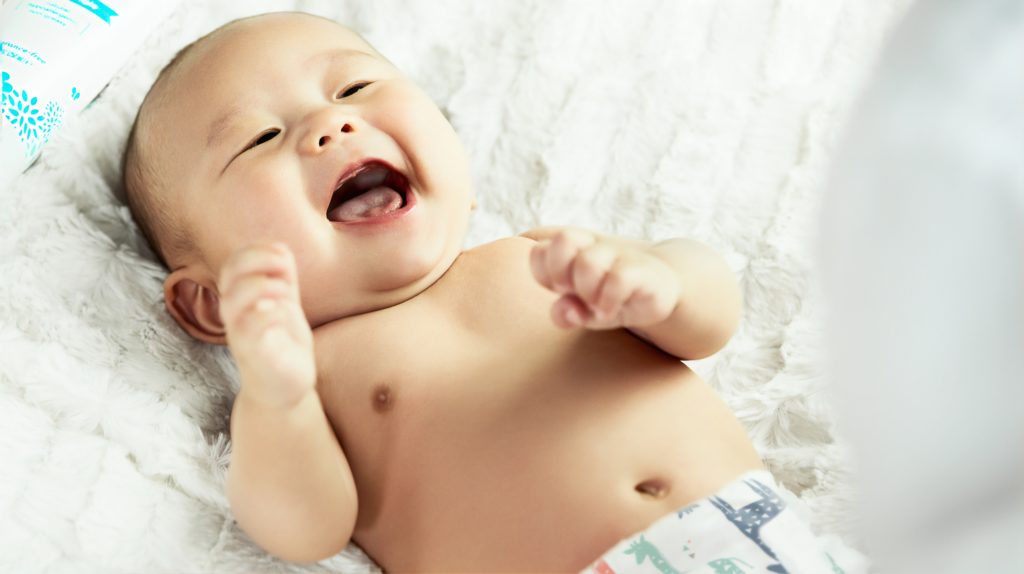Child Developmental Milestones for Infants (Months 1-3)

Every parent has heard about how fast babies grow. Many parents can expect their babies to double their birth weight by 5 months of age and triple their weight by 1 year! Your child will develop at their own pace, there are several developmental milestones every parent should be mindful of. Parents and pediatricians work hand in hand to assess whether their children and patients are meeting the appropriate milestones and what that might mean.
These milestones can be separated into three major categories:
- motor development,
- language development, and
- social and emotional development.
We’ll be covering major milestones in a series of articles, this article will address the first 3 months of your baby’s development. We promise we’ll get to walking and talking later!
Month 1
Within the first month of your infants life, most babies will have many different reflexes – most of these reflexes will fall into the motor development category.
- Mouthing Reflex – this reflex occurs when you bring something, like your hand, to the mouth of a baby and they begin to suck.
- Rooting Reflex – a reflex that aids in breast feeding is called the rooting reflex where a baby will turn their head into your hand as their cheek is touched.
- Startle Reflex – this reflex happens when your baby extends their arms and legs when they are startled.
Around the end of Month 1 your baby will probably do many small things such as grasping items placed in their hand with tight fists. They will respond in some way to noise – with blinking, increased heart rate, or other obvious response. At this point, they love to look at human faces and things like patterns.

Month 2
Entering Month 2, your baby will slowing start to become less dependent. Physically, babies can usually hold their head up and push themselves up while lying on their tummy. Your baby will also make smoother movements with their arms and legs. This is evidence of further motor development.
Socially, most babies will pay attention to faces and follow things with their eyes. They will begin to fuss or cry when they feel bored and will benefit from frequent changes in activity.
Their language will consist of coos and unintelligible sounds. Many times your baby will calm themselves with sucking on their hand or pacifier and making small cooing sounds.

Month 3
By now your baby will hopefully have mastered the skills presented in Month 2. They will continue growing more muscle in areas like their neck and developing new gross and fine motor skills.
Your baby can open and close their fists now, and bring their hands to their mouth. When excited or crying, your baby may move their legs and arms up and down or off the surface. Your baby should also be lifting their head to strengthen neck muscles at least for a couple seconds. If you want to stand your baby up, now they are able to push down on their legs when their feet touch the surface.
By now, your baby can probably recognize objects and faces or people from a distance and follow them as they move. They are also smiling and happy to hear her parent’s or caretaker’s voices! They can even enjoy playing with other children or people and could become unhappy when the playing stops.
In the area of language, your baby is definitely crying lots, but also babbling and maybe even intimidating sounds around her/him.
After 3 months, you may want to talk to your pediatrician if your baby…
- Keeps hands in fists and stiff legs
- Has difficulty lifting their head
- Does not follow objects with their eyes or make eye contact
- Does not calm down with rocking, smooth sounds, or being held
- Does not cry when uncomfortable or hungry or tired
- Does not notice or respond to loud sounds
- Does not smile at people, especially their caregiver
- Is unable to latch on while nursing or bottle feeding
- Loses an excess amount of formula or milk from the side of their mouth while feeding
Premature Babies
A baby that spent less than 37 weeks in the womb are considered premature because a normal pregnancy usually lasts 40 weeks.
Remember is that most developmental milestones for your baby will be based on the predicted delivery date. So if your baby is premature, the milestones will still be roughly based on that date.
For example, if your baby was born two months early, they are technically 4 months old, but they may only being showing the milestones for a 2 month old baby. Don’t worry if your baby takes longer to develop than their peers because most premature babies will experience some developmental delay.
The CDC.gov and the American Academy of Pediatrics provide free Child Developmental Milestone Checklists for you to print and keep track of your babies growth! Contact us to learn more and schedule an appointment.